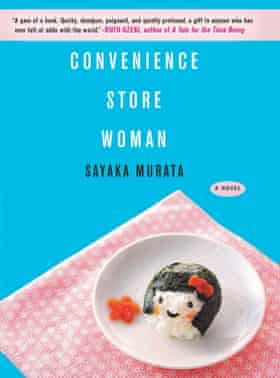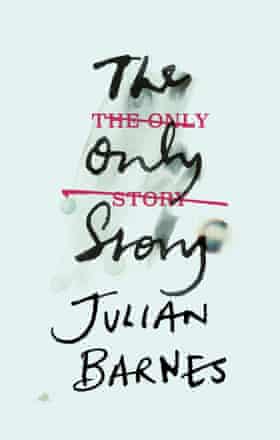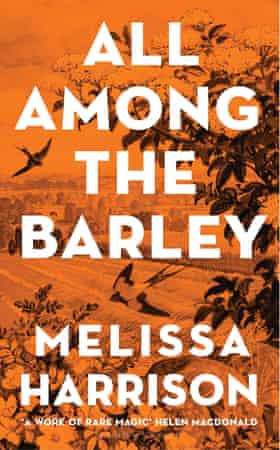 |
| Illustration by Leon Edler |
Best summer books 2018, as picked by writers and cultural figures – part five
From Pulitzer prize-winners to Penguin classics, poetry anthologies to the latest page-turners, here are the books to take to the beach this summer
Sun 8 Jul 2018 09.00 BSTMaggie O’Farrell
I loved Andrew Sean Greer’s Pulitzer prize-winning Less (Little, Brown) and I can’t think of a better book to stash in your suitcase. It follows Arthur Less – who keeps emphatically reiterating that he is absolutely not heartbroken by his boyfriend marrying someone else – from San Francisco to Japan, to Italy and back again. Like a rare diamond, Greer’s prose sparkles, illuminates and cuts. I’ve also just been sent an advance proof of some new Lucia Berlin short stories, Evening in Paradise (Picador). Any publication of hers is a major cause for celebration, as far as I’m concerned. I might have to feign illness to devote myself to them. I’m hoping to pick up a copy of Lauren Groff’s new novel, Florida (William Heinemann), before I head off to the Highlands next week; her last book, Fates and Furies, was a fascinating and febrile read. This one promises snakes, sinkholes and sisters, so I’m in.
Philip Pullman
Rupert Thomson is an astonishing writer, who should be far more celebrated than he is. His latest novel, Never Anyone But You (Little, Brown), is immensely surprising, fully imagined and totally original. We live in an age of wonderful science writing, and Carlo Rovelli’s new book, The Order of Time (Allen Lane), is an example of the very best. Time is something we think we know about instinctively; here he shows how profoundly strange it really is. Also, The Accident on the A35 by Graeme Macrae Burnet (Saraband): it’s a long time since I read a police procedural (more or less) that was so gripping and intelligent.
Lisa McInerney

For literary refreshment, try the playful, artful Convenience Store Woman by Sayaka Murata (Portobello, translated by Ginny Tapley Takemori). For a properly sweltering read, you need One Star Awakeby Andrew Meehan (New Island), all gorgeous longing and hunger in Paris. Those who can’t sleep in the heat might find the ingeniously disquieting stories in Things We Lost in the Fire by Mariana Enríquez (Portobello , translated by Megan McDowell) apt. If I manage a couple of days off, I’ll head for Kerry on the Atlantic coast of Ireland and take Ten Arguments for Deleting Your Social Media Accounts Right Now
by Jaron Lanier (Bodley Head) and a recently delivered proof I can’t wait to get stuck into: Crimson by Greenlandic sensation Niviaq Korneliussen (Virago, translated by Anna Halager).
Mark O’Connell
If you like your holiday beach reads to include a measure of deep existential terror – and who doesn’t? – I am happy to point you toward Mariana Enríquez’s utterly brilliant short story collectionThings We Lost in the Fire (Portobello, translated by Megan McDowell). Instead of returning home with a tan, you will be likely to return home looking pale and haunted, and with your eyes sunken in your skull, but you will thank me for the tip. (Either that or you’ll curse me for it, it’s pretty much 50/50.) Perhaps even less appropriate a beach read is James Bridle’s book New Dark Age (Verso), an extraordinary, perceptive analysis of the various ways in which the rise of information technology has obscured, rather than illuminated, the operations of power in the world, and diminished our capacity to improve it. It’s brilliant and bracing. The two books I’m most excited to read this summer – almost certainly not on a beach, though you never know – are Olivia Laing’s Crudo (Picador), and Jacqueline Rose’s Mothers: an Essay on Love and Cruelty (Faber), which I’ve just started reading and am very much enjoying.
Nina Stibbe
Two recent favourites are memoirs that use other books to tell their story. Sally Bayley’s Girl With Dove: A Life Built By Books(Harper Collins) borrows voices and themes from literary classics (eg Jane Eyre, David Copperfield, Miss Marple, Milly-Molly-Mandy) to make sense of the strange goings-on in her own family. I highly recommend the author’s exuberant reading of the audiobook for the full effect of this beguiling, eccentric, funny memoir. In her joyful memoir Bookworm: A Memoir of Childhood Reading (Vintage), Lucy Mangan revisits our most beloved childhood books (Milly-Molly-Mandy crops up again), brings the characters of our collective childhood back to life and uses them – with great wit and wisdom – to tell her own story. Wonderful. Another book on the transformative power of books is Educated (Hutchinson), Tara Westover’s fascinating, jaw-dropping memoir of being raised by a survivalist scrap-merchant who doesn’t trust medicine, schools or dairy products, and tells the story of her determination to find knowledge. My summer will be spent at home, on the beaches of Cornwall, and a holiday read I’m looking forward to is Human Relations and Other Difficulties
– the collected essays (1972-2015) of Mary-Kay Wilmers (Profile), editor of the London Review of Books and my old boss.
Rupert Goold

I spend my life in the third person watching characters shouting from the stage, so I’m most drawn to writers who show me something different or unusually personal with a whispering voice from the page. Julian Barnes’s completely devastating The Only Story
(Jonathan Cape) is as quiet and aching and intimate as a James Blake ballad. Rachel Cusk’s Kudos (Faber), the third in a breathtaking trilogy, is its polar opposite, voiceless, disconcerting, secretive and utterly modern. Finally, I’ll take John Fowles’s adolescent, deeply theatrical, classic The Magus (Vintage), which reminds me of being a teenager hoping to find holiday romance and instead seeking consolation in a book.
Jessie Burton
I’m enjoying books that present as memoir but with a beauty of prose that elevates them, so I adored Jean Hannah Edelstein’s phenomenal This Really Isn’t About You (Picador), a warm and witty account of finding your feet in the face of great loss. Andrew Hankinson’s You Could Do Something Amazing With Your Life (You Are Raoul Moat) (Scribe) is another gripper, a powerful literary experiment written in the voice of the killer. On a lighter note, for my trip to Los Angeles, I’m packing Cesare Pavese’s The Beautiful Summer (Penguin), with an introduction by Elizabeth Strout, a slender account of love in 1930s Italy, and 300 Arguments and Ongoingness: The End of a Diary (Picador) by Sarah Manguso, brimming with invaluable wisdom and elegance.
Iwona Blazwick
Holidays are for distraction-free immersion in books with heft. Artist Hito Steyerl’s Duty Free Art (Verso) is a dizzying and dystopian riff on the liquid capital that flows through the art world, the factoids manufactured by bots and our accumulation of digital debris. Counter that with Practice: Documents of Contemporary Art (Whitechapel Gallery), an anthology of essays on and by artists ranging from Marina Abramović to Gerhard Richter and their strategies for making, doing and resisting the virtual. A book that reads like magic realism but is entirely factual is Naples ’44 by Norman Lewis (Eland), a riveting and cinematic account of how Neapolitans dealt with siege and starvation – countesses transformed ballrooms into vegetable gardens or simply took to prostitution, and the cat population declined dramatically – while keeping up appearances. I will be in the Tuscan hills this summer and I am taking with me Shape of Light: 100 Years of Photography and Abstract Art (Tate) to inspire my own photographic experiments.
Evie Wyld

Melissa Harrison’s forthcoming All Among the Barley
(Bloomsbury) gets you in the first sentence and does not let go; I cannot recommend it enough. The Secret Barrister: Stories of the Law and How It’s Broken
(Macmillan) is an eye-opening, funny and horrifying look at the criminal justice system, perfect for reading sections out and disrupting the lives of those around you who are “just trying to have a nice time”. I also will take These Bones Will Rise Again
by Panashe Chigumadzi (Indigo), This Really Isn’t About You by Jean Hannah Edelstein (Picador), and Run, Riot by Nikesh Shukla (Hodder) with me for a week in a tent on the Isle of Wight.
Joe Dunthorne
I heartily recommend Who Is Rich? by Matthew Klam (Fourth Estate). It’s the funniest novel I’ve read in ages and one of the saddest. The narrator, Rich Fischer, a once somewhat famous cartoonist, will please anyone who likes their protagonists clever and deluded, hopeful and doomed. I also loved Kayo Chingonyi’s debut poetry collection, Kumukanda (Chatto & Windus). His poems are intelligent and moving and find the perfect balance between intricacy and directness. I’ve got lots of books I’m looking forward to reading on a beach in Gower: Flights by Olga Tokarczuk (Fitzcarraldo Editions, translated by Jennifer Croft), Hold by Michael Donkor (Fourth Estate) and Astroturf by Matthew Sperling (Quercus).
THE GUARDIAN

No comments:
Post a Comment